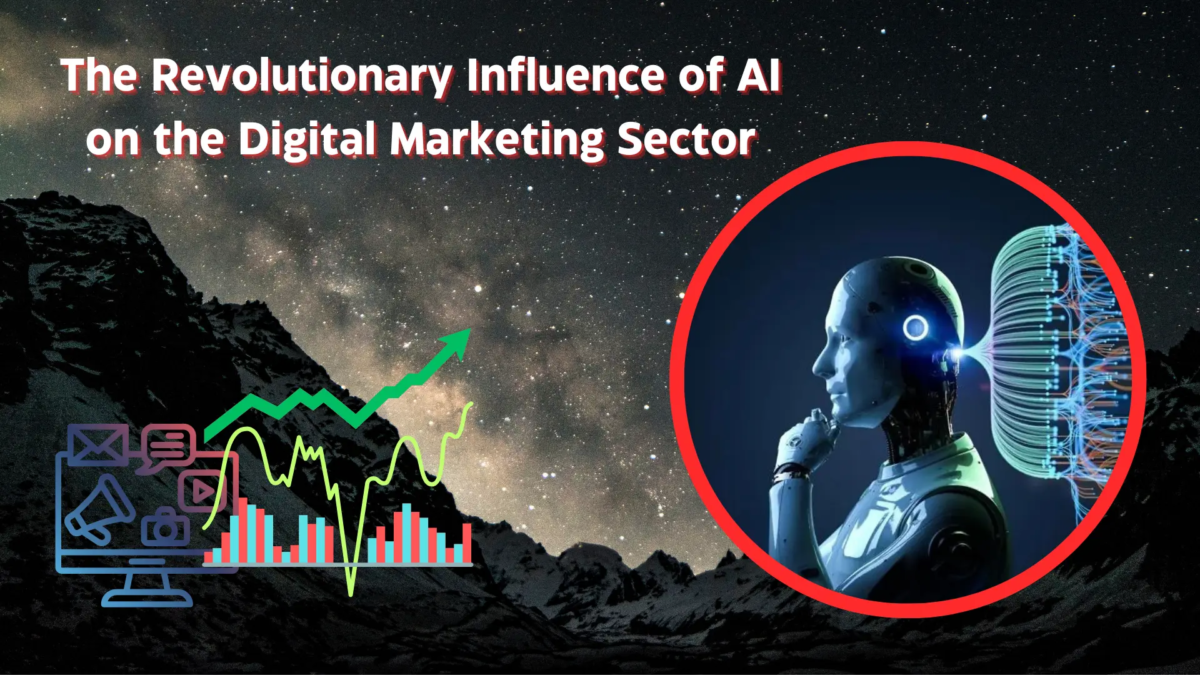Artificial Intelligence (AI) has emerged as a powerful force reshaping industries across the board, and one of the areas where its impact is most palpable is in digital marketing. AI technologies are revolutionizing how businesses understand, engage with, and convert customers. Let’s delve into some key areas where AI is making a transformative impact on the digital marketing landscape.
1. Personalized Marketing
AI enables marketers to create highly personalized experiences for their customers. By analyzing vast amounts of data, AI algorithms can segment audiences more effectively, allowing marketers to tailor content and messages based on individual preferences, behaviours, and past interactions. For instance, Amazon uses AI to recommend products based on a customer’s browsing and purchasing history, resulting in higher conversion rates and customer satisfaction.
2. Predictive Analytics
AI-driven predictive analytics empower marketers to anticipate customer behaviour and trends more accurately. By analyzing historical data and identifying patterns, AI algorithms can forecast future outcomes, helping marketers make data-driven decisions. For example, predictive analytics can help retailers forecast demand for products, optimize pricing strategies, and plan marketing campaigns more effectively.
3. Chatbots and Customer Service
Nowadays, chatbots driven by AI have completely transformed customer service. These intelligent bots can handle routine inquiries, provide instant support, and even simulate human-like conversations. Chatbots powered by natural language processing (NLP) can understand customer queries, provide relevant information, and escalate complex issues to human agents when necessary. This lowers response times and operating expenses for organizations while simultaneously increasing customer satisfaction.
4. Content Creation and Optimization
AI tools are transforming content creation and optimization processes for marketers. Natural language generation (NLG) algorithms can generate written content, such as product descriptions, blog posts, and social media updates, at scale and with high accuracy. AI-powered content optimization tools analyze performance metrics and user feedback to suggest improvements, such as keyword optimization, content structure enhancements, and A/B testing strategies, leading to higher engagement and conversion rates.
5. Real-time Insights and Decision Making
AI enables marketers to gain real-time insights into campaign performance and customer behavior. By processing data in real-time, AI systems can identify trends, detect anomalies, and provide actionable recommendations instantly. This agility allows marketers to adjust strategies on the fly, optimize ad spend, and capitalize on emerging opportunities, resulting in more effective marketing campaigns and better ROI.
Examples of AI in Action
Netflix: The streaming giant uses AI algorithms to analyze user viewing habits and preferences, powering its recommendation engine to recommend personalized content to each viewer.
Google Ads: Google’s AI-driven Smart Bidding strategies optimize ad campaigns by adjusting bids in real-time based on factors like device, location, time of day, and user behaviour, maximizing ROI for advertisers.
Sephora: The beauty retailer employs AI-powered virtual try-on tools that use facial recognition technology to allow customers to virtually try makeup products, enhancing the online shopping experience and driving sales.
HubSpot: This marketing automation platform utilizes AI to help businesses create, optimize, and automate marketing campaigns across multiple channels, improving lead generation and customer engagement.
In conclusion, AI is a game-changer for the digital marketing industry, enabling marketers to deliver personalized experiences, make data-driven decisions, automate processes, and achieve better results across the board. Embracing AI technologies is no longer optional, but essential for businesses looking to stay competitive and thrive in today’s digital landscape.



[…] out and connecting with individual customers has become a challenge. Enter AI-powered personalized marketing, a revolutionary approach that utilizes artificial intelligence to tailor marketing efforts to each […]